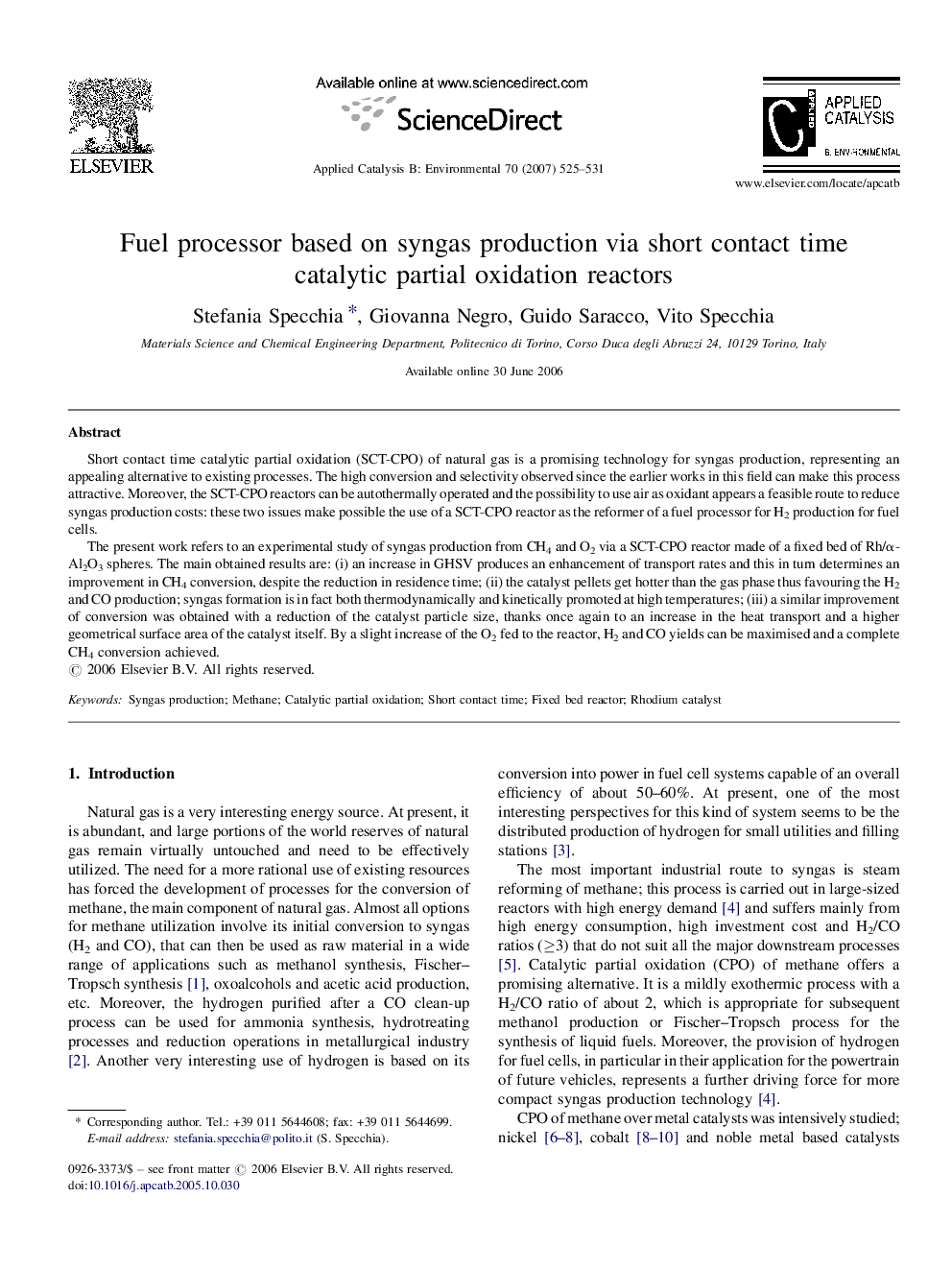| کد مقاله | کد نشریه | سال انتشار | مقاله انگلیسی | نسخه تمام متن |
|---|---|---|---|---|
| 48838 | 46522 | 2007 | 7 صفحه PDF | دانلود رایگان |

Short contact time catalytic partial oxidation (SCT-CPO) of natural gas is a promising technology for syngas production, representing an appealing alternative to existing processes. The high conversion and selectivity observed since the earlier works in this field can make this process attractive. Moreover, the SCT-CPO reactors can be autothermally operated and the possibility to use air as oxidant appears a feasible route to reduce syngas production costs: these two issues make possible the use of a SCT-CPO reactor as the reformer of a fuel processor for H2 production for fuel cells.The present work refers to an experimental study of syngas production from CH4 and O2 via a SCT-CPO reactor made of a fixed bed of Rh/α-Al2O3 spheres. The main obtained results are: (i) an increase in GHSV produces an enhancement of transport rates and this in turn determines an improvement in CH4 conversion, despite the reduction in residence time; (ii) the catalyst pellets get hotter than the gas phase thus favouring the H2 and CO production; syngas formation is in fact both thermodynamically and kinetically promoted at high temperatures; (iii) a similar improvement of conversion was obtained with a reduction of the catalyst particle size, thanks once again to an increase in the heat transport and a higher geometrical surface area of the catalyst itself. By a slight increase of the O2 fed to the reactor, H2 and CO yields can be maximised and a complete CH4 conversion achieved.
Journal: Applied Catalysis B: Environmental - Volume 70, Issues 1–4, 31 January 2007, Pages 525–531